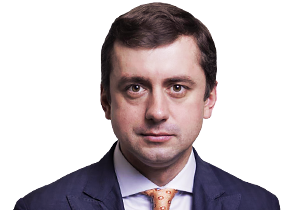Russia is starting a big game. The unification of processes with Belarus is the first step in the revanche of the Soviet, or even imperial, model. But will Ukraine be next?
The "absorption" of neighboring Belarus by Russia has long been discussed. These processes are quite clear, just as expectations are. Although Lukashenko tries his best to play on the two fronts, even the EU's lucrative proposals on visa waiver can't outweigh the country's desire for rapprochement with its "older brother".
Lukashenko, of course, is too experienced of a political manipulator, in particular, a master of playing the strings of the Kremlin's sentiment, especially when there is an opportunity to get from the northern neighbor a nice discount for gas, oil, or financial aid altogether. The Russians made concessions from time to time, but they also put forward demands along the way. For example, to allow deploying military bases for land and air forces. For Russians, this is a strategic advantage in defending their territory against NATO, while for Belarus, the presence of the troops of a neighboring state gives no freedom of action, while restricting geopolitical autonomy.
The absorption of Belarus has taken place a long time ago, and it is noticeable including on the linguistic front – the number of Russian-speakers reaches almost 90%
The absorption of Belarus has taken place a long time ago, and it is noticeable including on the linguistic front – the number of Russian-speakers reaches almost 90%, while Belarusian language can only be heard in individual rural areas.
Moreover, Russia and Belarus's intelligence agencies have long synchronized their work. To this fact testifies the arrest on Belarusian soil and further transfer to Russia of Ukrainian national Pavlo Hryb.
At present, the "absorbtion" involves two states only, but that does not mean that Russia will stop. The integration of Belarus and Russia is an effort to bring back the Soviet or even imperial model, where Russia will play a major role because it is larger, richer, and with natural resources and a stronger army.
What does "deep integration" mean? First of all, it is about unifying energy markets, tax laws, forming a common parliament and government. At least these goals were voiced by Russian Ambassador in Belarus Vladimir Semashko. Although the embassy later disproved the words of their chief, it was like a "Freudian slip." After all, diplomats never spit out words in vain. However, the refutation may also indicate that Lukashenko is not fully convinced of the said model of integration.
Belarusians need cheap energy because it is directly related to economic growth. Cheap gas will not come from the EU, so all they have left to do is to go and negotiate with the Kremlin chief. And Moscow is ready to offer low prices, but in exchange for political loyalty. And Moscow is trying this tactic on all its neighbors.
According to media reports, on December 8, a meeting between Lukashenko and Putin was supposed to take place, at which time they finally had to reach a deal, but after disputing the words of their envoy, the Kremlin took a break because the partner didn't do what was necessary. We know this tactic. The Ukrainian authorities have experienced it when the condition for the Normandy Four summit was for the Ukrainian side to agree on the Steinmeier formula of Donbas settlement, which radically changes the logic of implementation of Minsk agreements.
Putin's dream is to agree on "deep integration" with Belarus and to start the same thing with Ukraine during the Normandy Four summit
The Kremlin always offers carrot, holding a stick beyond their back. Putin's dream is to agree on "deep integration" with Belarus and to start the same thing with Ukraine during the Normandy Four summit. That's especially so – and this is no longer a secret – given that Volodymyr Zelensky and Vladimir Putin will have a one-on-one meeting. It is in this format that the formula for restarting relations can be voiced.
It will not be the same formula as with Belarus. After all, Ukrainian society has grown significantly in its awareness of own importance in the country. However, this will be another demand to Zelensky, after which there will be a promise of something else. Putin is not interested in curbing the Donbas conflict. On the contrary, it is profitable for him to maintain a smoldering conflict that would hinder Ukraine's European integration processes. That is, you may talk about NATO, the EU, or whatever you wish, but things are unlikely to ever lead to an actual accession. And so is with Belarus. You can talk about independence, no one is against such discussions, but, in fact, the "brotherly" nation will remain very limited, or even controlled.
Taras Semeniuk is an analyst with KyivStratPro


